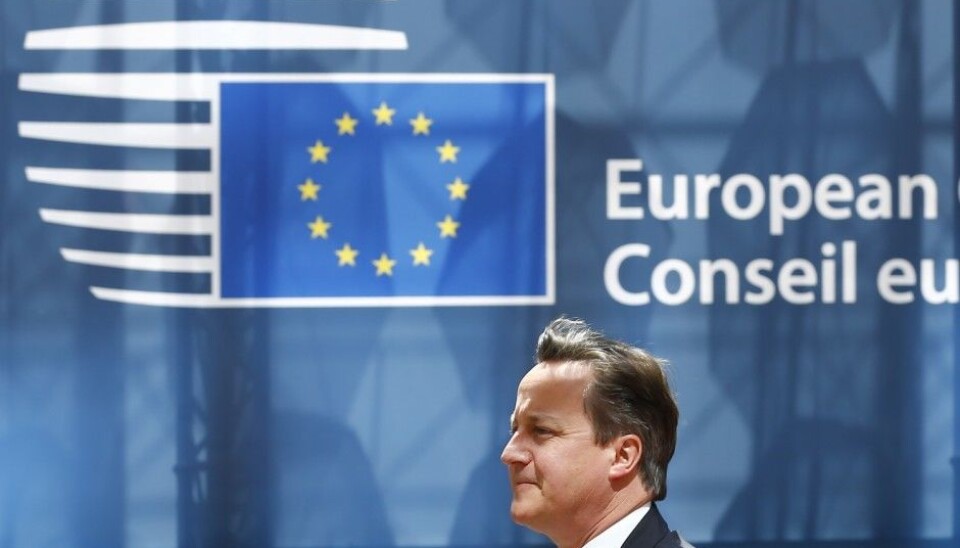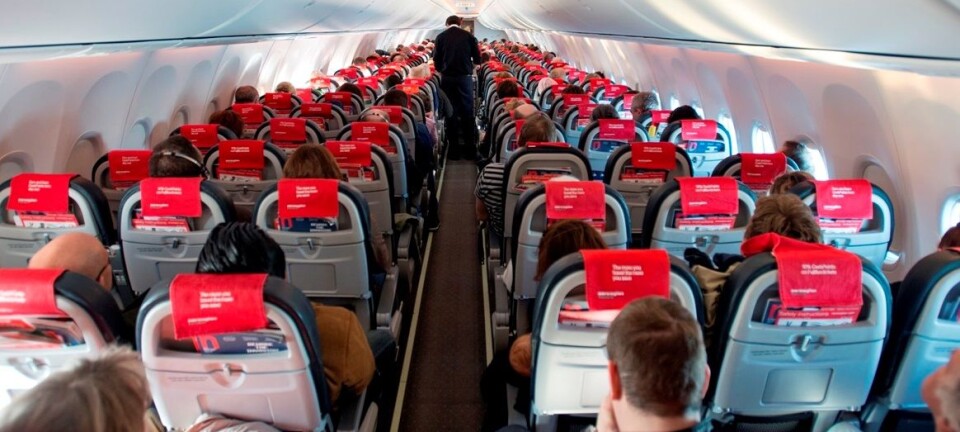An article from University of Oslo

Brexit and the UK’s future
What options are available for the Brits should they decide to leave the European Union? Some important lessons can be drawn from current non-members which enjoy the benefits of the EU’s internal market.
Denne artikkelen er over ti år gammel og kan inneholde utdatert informasjon.
When British Prime Minister David Cameron promised an unprecedented British referendum on EU membership in January 2013, it sparked a renewed debate on the UK’s future in Europe. Upon his re-election this May, Cameron stressed that he would live up to his pledge. The referendum, which is likely to be held late 2016 or in 2017, will give the Brits the chance to vote on whether to remain in the EU or not.
"Should it result in a British exit, a Brexit, this would be the first time that a member state leaves the Union," says Chris Lord, professor in political science at ARENA Centre for European Studies. He envisages four possible futures for Britain after the referendum.
Today, the EU has a range of different arrangements for economic integration with its neighbours. Some countries, such as Norway and Switzerland, have been reluctant to become full members whereas others, such as Turkey, do not (yet) comply with the EU’s entry requirements.
The lessons from associated non-members might be helpful to get a clearer view of the issues at stake for Britain in the current debate.
Four futures for Britain
Lord has analysed the UK’s relationship with Europe since the 1950s and contributes to a brand-new book: The European Union’s non-members: independence under hegemony? The book takes a closer look at different forms of closely associated non-members’ EU affiliation, and the consequences non-membership has for democracy.
Lord suggests four alternative futures for Britain and the EU, which he characterizes as ‘completely in’, ‘in but not completely in’, ‘out but not completely out’, and ‘completely out’.
Completely in
The first option would be full UK inclusion in all aspects of the EU, including the euro.
Although it might seem far away today, this option was, until the financial and euro crises, assumed by many – including ex-Prime Minister Tony Blair – to be the most plausible long-term trajectory of Britain’s membership.
In but not completely in
This is the second option. It would by and large entail keeping the UK’s present form of membership. Britain is not part of the euro zone today and already opts out of some of the EU’s police and criminal justice legislation. Should a referendum support further EU membership, this might be the most likely future for Britain. Recent opinion polls indicate that a majority of the Brits want their country to remain inside the Union.
Should the UK on the other hand decide to leave the EU, there seem to be two possible options to replace membership.
Out but not completely out
A third option for the UK would be to leave the Union but negotiate a continuing relationship with it.
The UK might still want to keep close relations with the EU by participating in selected EU policies and the single market. Today, the prevailing models are those of Norway and Switzerland.
"Opting for one of these models has been depicted as a ‘better life’ of easy access to the single market without some of the supposed burdens of EU membership," Lord explains, adding that there are however good reasons to question whether it is possible to hold on to the benefits only.
He points to the book’s in-depth studies of Norway, Switzerland and Iceland, which identify a set of negative consequences for these closely associated countries.
Norway, Iceland and Lichtenstein are affiliated through the European Economic Area (EEA) Agreement. This is a dynamic agreement; it is continually updated so that laws and regulations remain consistent throughout the EEA. This ensures a homogeneous single market. However, the lack of participation in relevant EU decision-making restricts national autonomy and sovereignty.
This is a severe democratic issue, according to the book’s editors, professors Erik O. Eriksen and John Erik Fossum, also from ARENA.
"Norway obeys and pays but remains without representation. The basic democratic principle of no legislation without representation is breached," Eriksen argues.
Switzerland on the other hand negotiates ‘static’ bilateral treaties with the EU. The country has more than 100 of them. For Britain this would be a very complex solution, and one that the EU is unlikely to support according to several of the book’s scholars.
No less important from a sovereignty perspective, the Swiss contributors find that ‘the bilateral agreements have generated obligations that are similar to those of the EEA’.
Completely out
The fourth and final option would be for Britain to go it alone.
"For those seeking British withdrawal from the Union, the so-called Brexiters, the issues at stake are related to sovereignty, international power, political economy and domestic politics," Lord outlines.
In his view, these four factors cannot be reconciled for Brexiters in any other way than by being ‘completely out’. He explains that by pointing to the sovereignty costs of the Norwegian and Swiss models.
"Equivalent arrangements would be incompatible with the autonomy that many hope to regain by leaving the EU."
"Supporters of a Brexit would presumably not be interested in any relationship substantially regulated by EU institutions or principles. This leaves us with the alternative of a narrow-based free-trade agreement. This would be identical to one that any state in the international system might seek to include with the EU."
He underlines, however: "Choosing this option seems to overlook the fact that the UK would loose out on the EU’s collective bargaining power in international trade. Brexit would put non-EU as well as EU markets at risk," he says.
The UK is a country with a large trade deficit that is also dependent on the EU’s single market for 50 percent of its exports.
Another issue at stake for Britain is foreign policy, according to Lord.
"The UK would need to consider implications for its relations with the US. US policy makers have often assumed that the EU’s foreign and security policy is more likely to evolve on terms they can accept with British participation than without it. This aspect seems to be completely overlooked by supporters of Brexit," Lord warns.
Imperfect existing models
In sum, should Britain wish to remain part of the largest common market in the world – as an ‘ex-member state’ – some form of the ‘out but not completely out’ option would have to be agreed. But as we have seen, existing models come with defects.
More surprisingly, Eriksen and Fossum conclude that the reality on the ground is quite similar despite important formal differences between these countries.
"The EU’s closely associated non-members exist under a form of ‘self-inflicted hegemony’. The interesting point is that this problem becomes more manifest the closer, more formalised, the association is," Fossum claims.
The option ‘out but not completely out’ is moreover likely to be narrowed down to one only; that of the EEA, which is referred to as a blueprint model by the EU.
"The EEA has effective solutions for a dynamic adaptation to the evolving EU legislation. The other neighbourhood models of deep economic integration have reached their limits, since they lack efficient arrangements for ensuring market homogeneity, College of Europe professor Sieglinde Gstöhl states."
The Swiss model is therefore likely to be abolished in the near future.
"Yet, if Britain would become an EEA country like Norway and Iceland, based on an ambition to deregulate, the EEA might be turned away from compromise to confrontation. A destructive internal clash would not be in the interest of the existing members," Lord adds.
"The ambiguity of Britain’s relationship with the EU is not new. Even when the UK was ‘out’ in the period 1950–73 it did not want to be completely ‘out’. Even since it has been ‘in’, it has never been completely ‘in’ such processes as monetary integration."
Which of the above scenarios the Brits themselves find most tempting, will only be revealed after the EU referendum.
------------------------------
Read the Norwegian version of this article at forskning.no
































